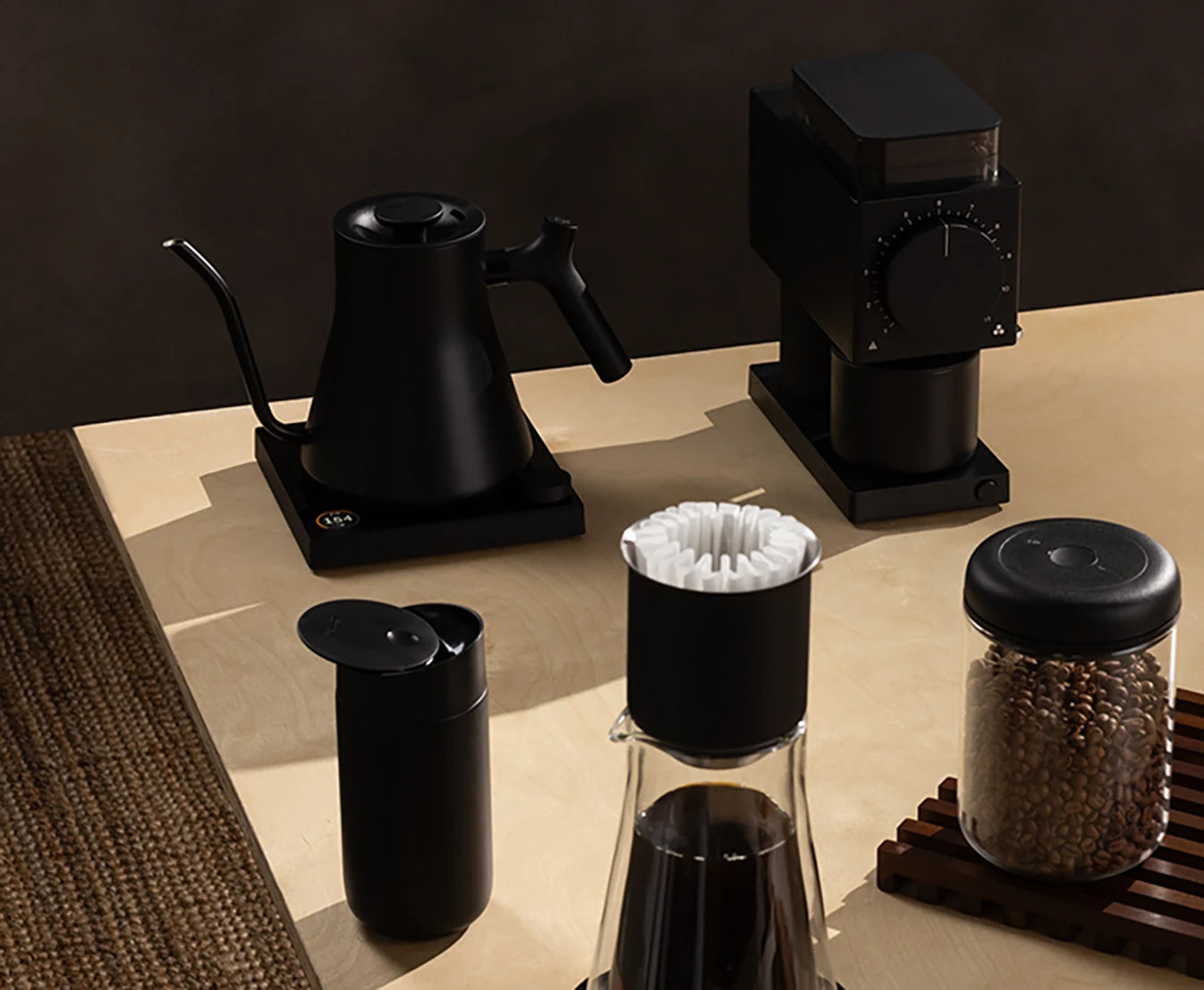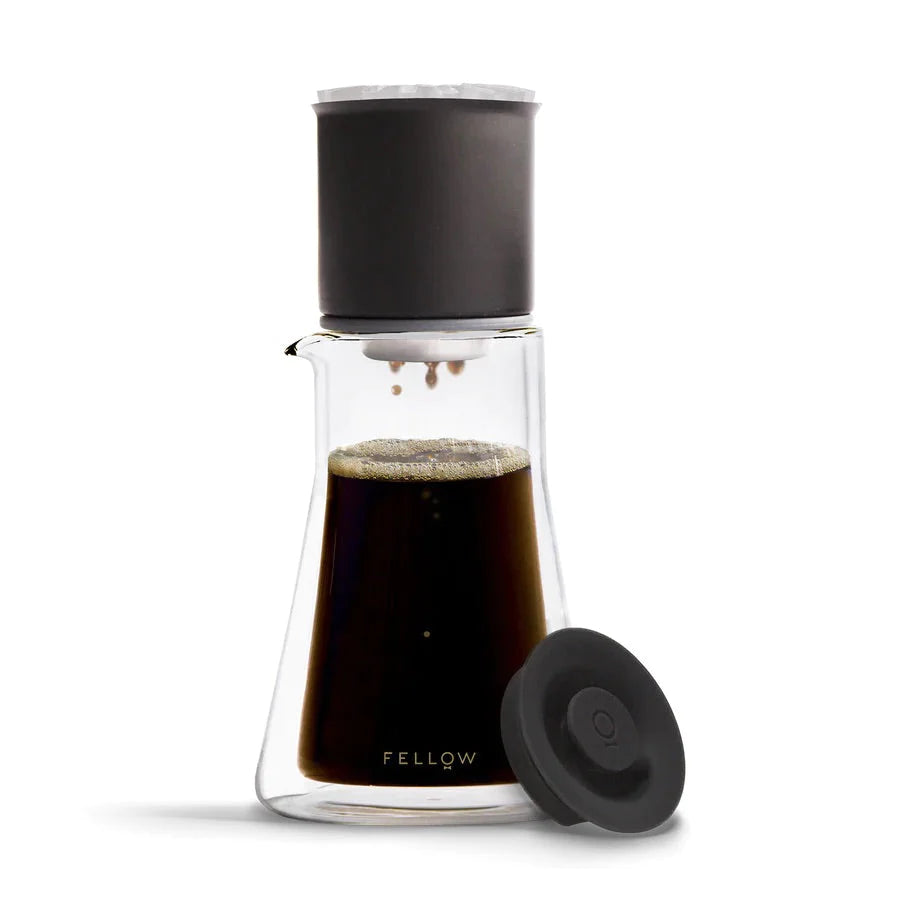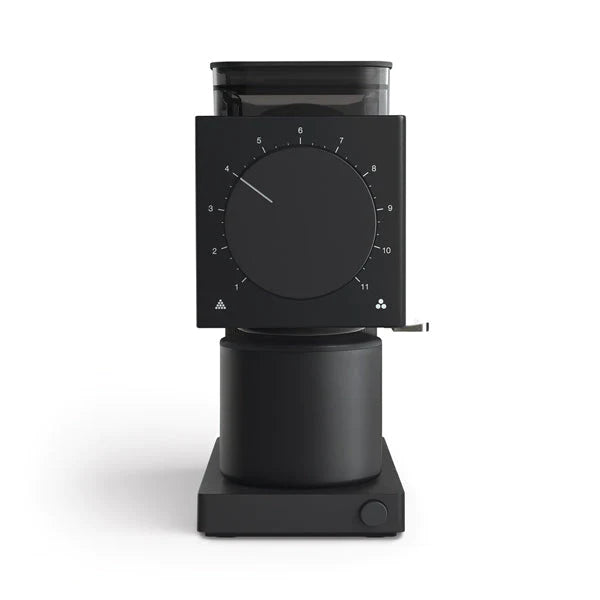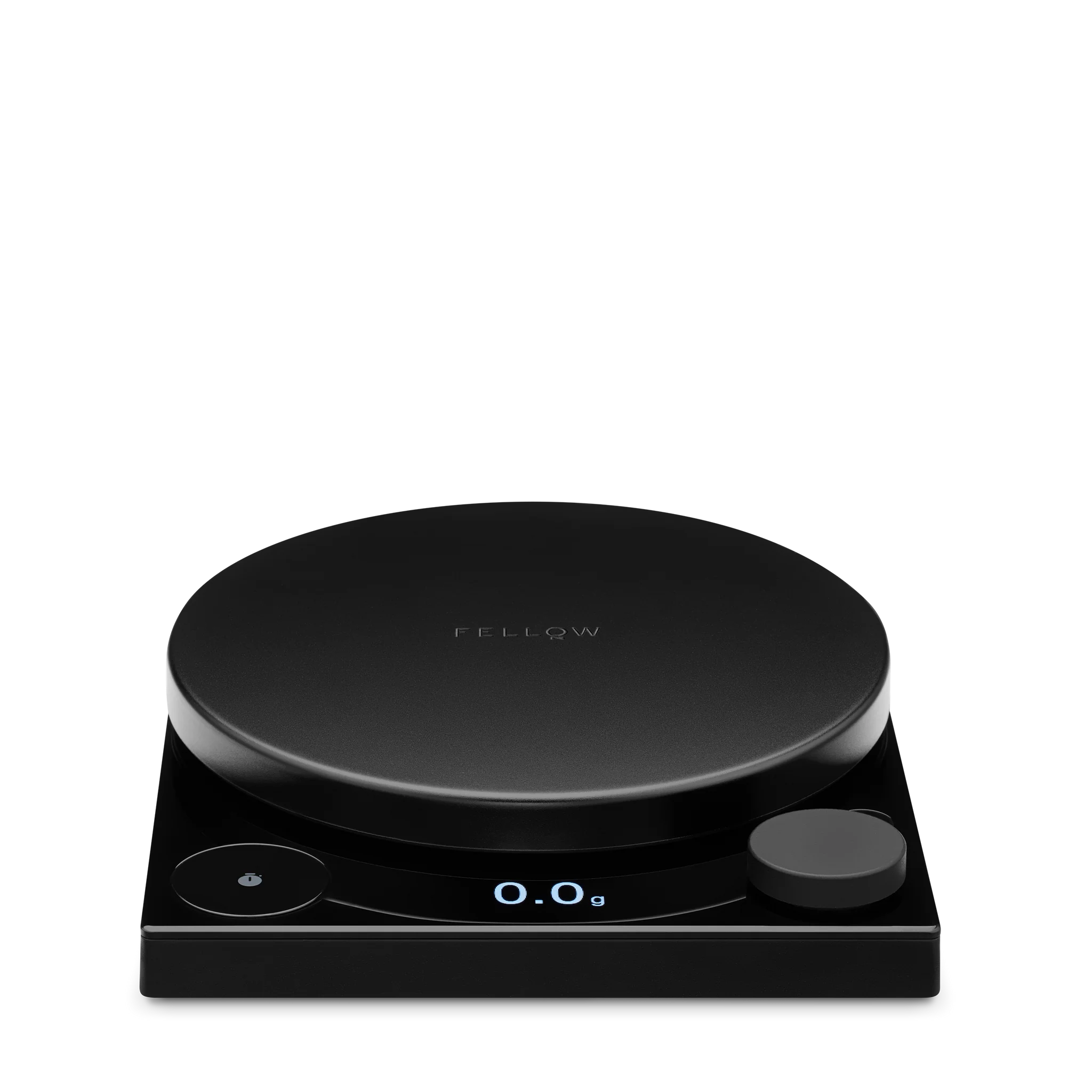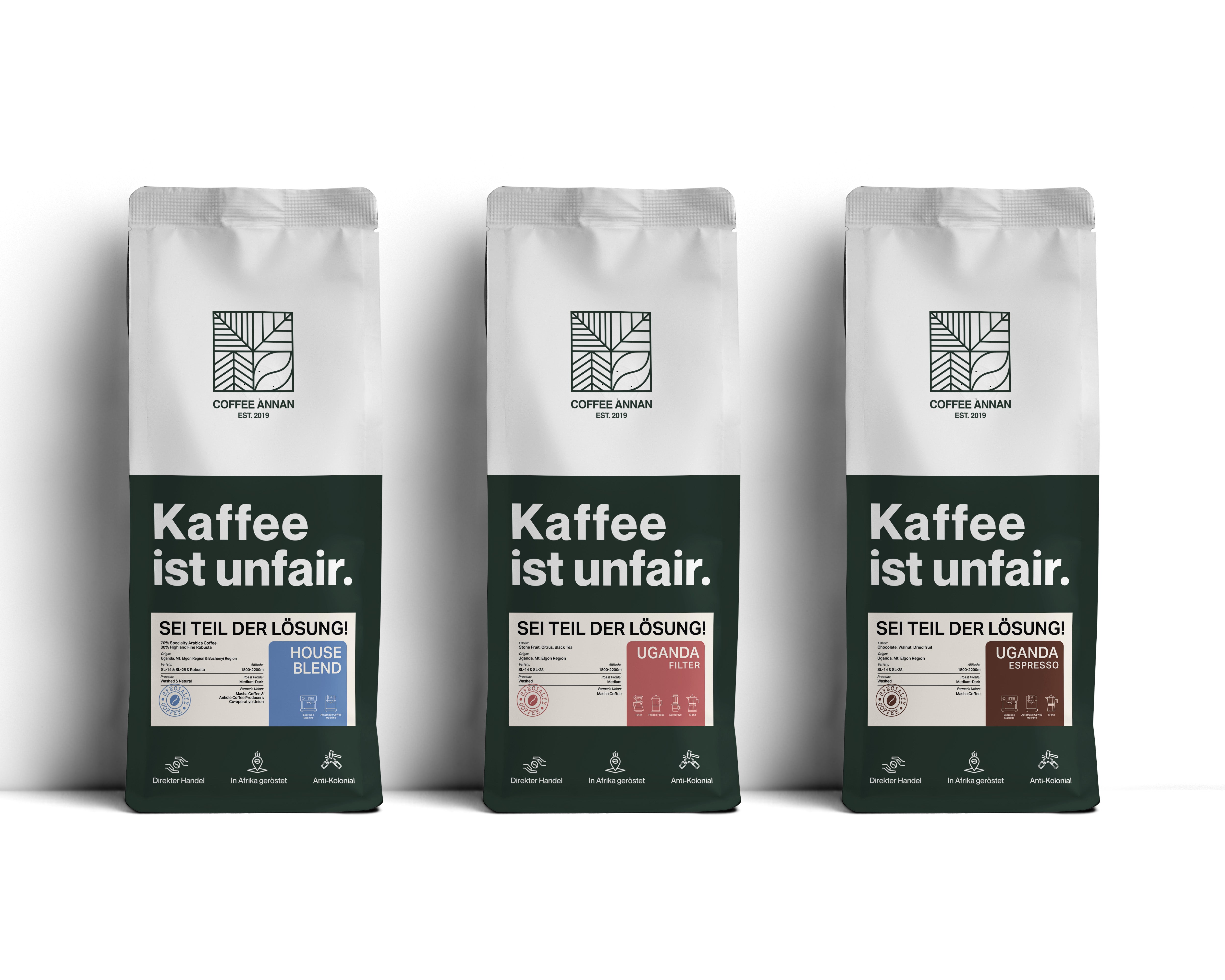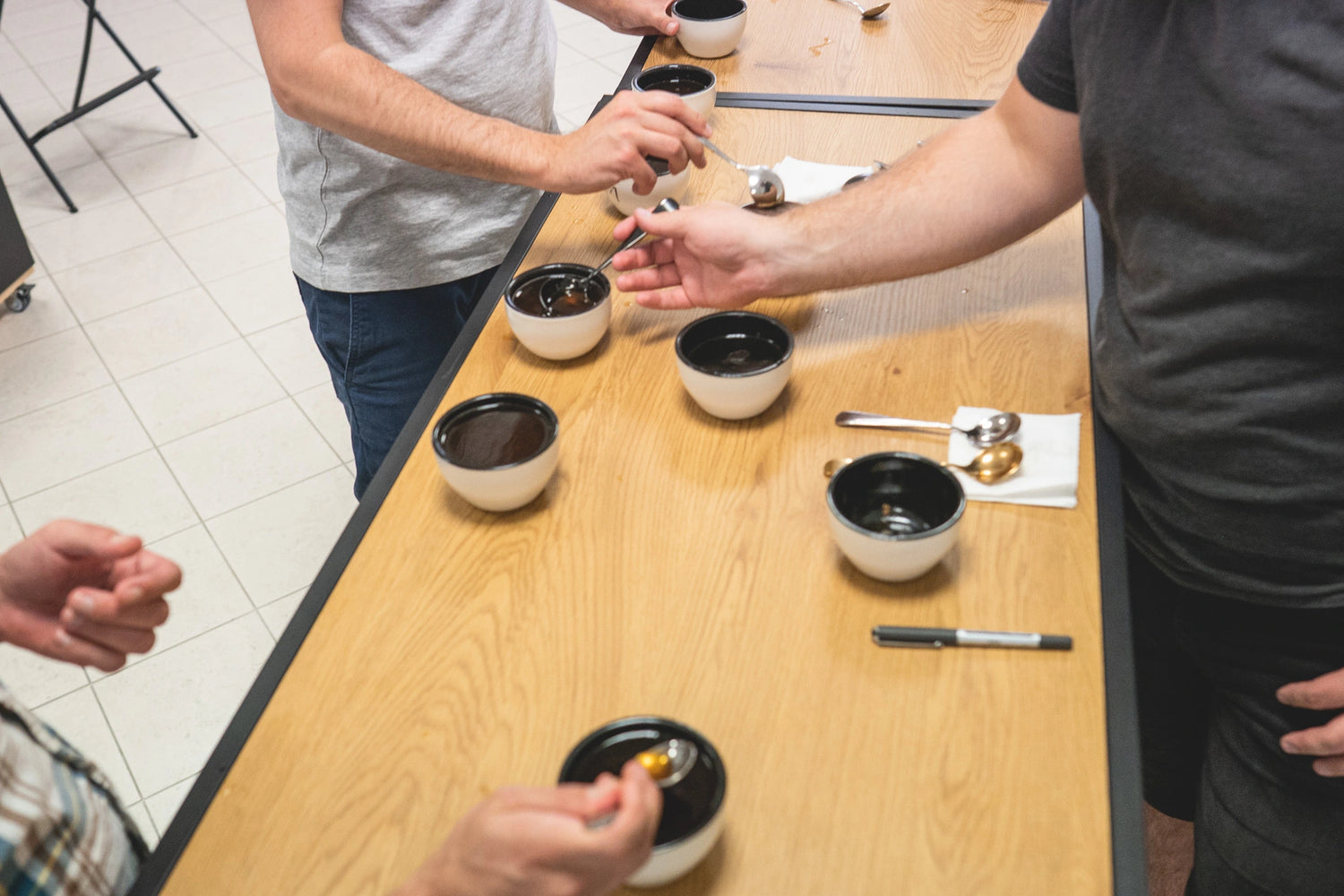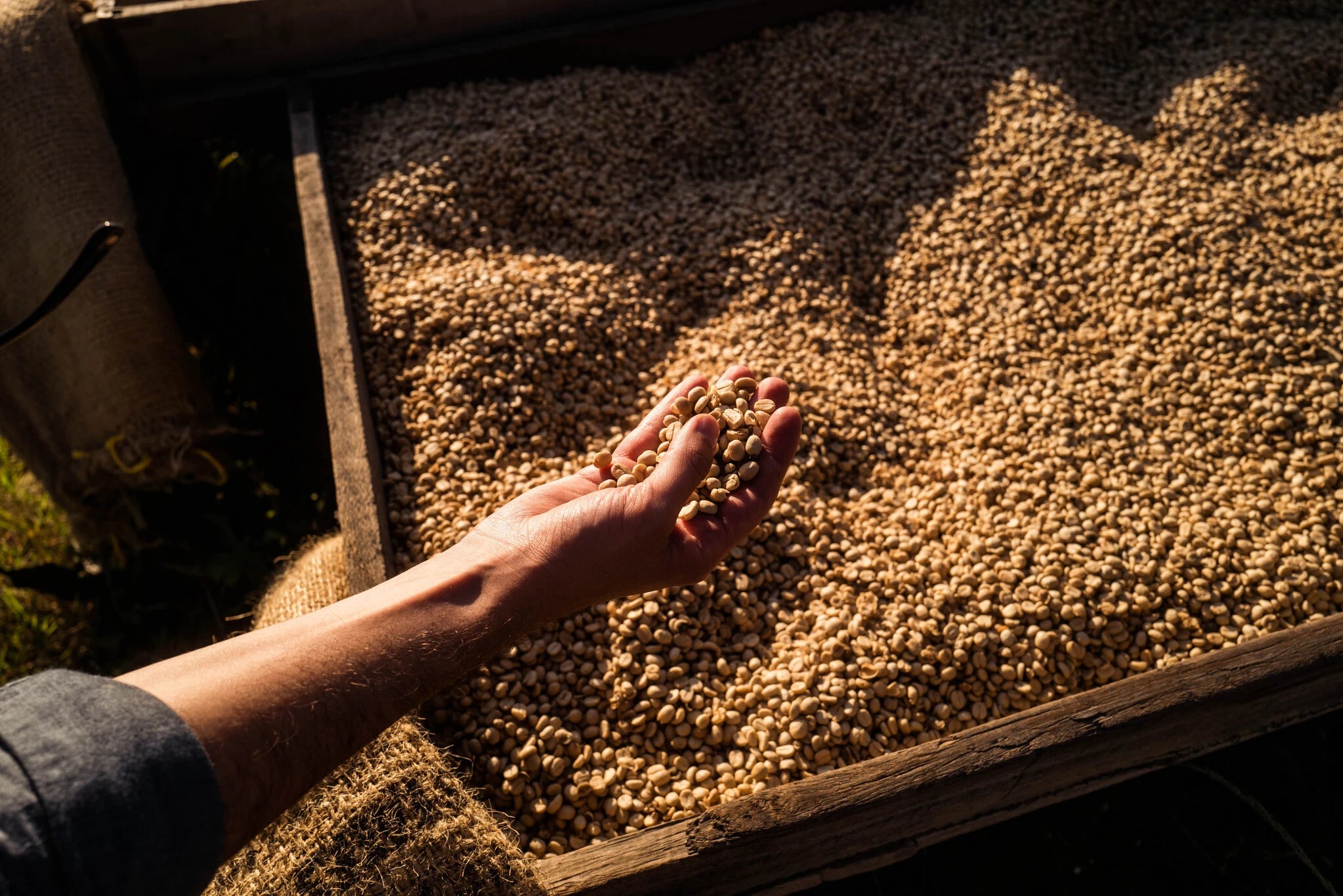The importance of the SCA Cupping Protocol
The Cupping Protocol, developed by the Specialty Coffee Association (SCA), is a manifesto of quality assurance and represents a standardized rating system for coffee. Why is this important?
Different types of coffee are grown in different parts of the world, each with unique aromas and flavor profiles. The beans are influenced by various variables, from the growing altitude to the microclimate conditions of the location. The Cupping Protocol makes it possible to systematically categorize and evaluate this variety of flavors.
At Coffee Annan, this standardized protocol is primarily used for quality assurance. We also pay premium prices for specialty coffee that are well above the Fairtrade minimum price.
Before the tasting process even begins, the beans go through a rigorous inspection for size, density and possible imperfections. Accurate analysis of the bean quality is of central importance. This is followed by the grinding process, which, like all other elements of the SCA Cupping Protocol, follows a certain standard: The grind should be similar to coarse sea salt in order to optimize the release of the aromas and flavors.
Other important standards are the coffee-to-water ratio of 55g/L ± 10% and the water temperature of 93°C ± 3°.
Water quality is another crucial factor. It is recommended to use fresh water that does not exceed certain mineral levels to avoid adulteration of taste. The cupping protocol also standardizes brewing times to achieve consistent results.
Coffee beans have a variety of chemical compounds, and brewing them triggers complex chemical reactions. These affect both the aroma and taste of the coffee. The Cupping Protocol takes these factors into account and provides precise specifications for the brewing process.
The result of all surveys within the SCA Cupping Protocol is a score. The maximum is 100 points. If a coffee scores 80 points or more, it is considered a specialty coffee. And even between 80 and 100 points there are the following gradations: 80-84.99 points - very good specialty/85-89.99 points - excellent specialty/90-100 points - outstanding specialty.
In order to categorize this, training and certain experience are essential. This is where Q-grading comes into play. People with appropriate training are called Q-graders. More on this below:
The Q-Grader: The Elite of Coffee Tasting
A Q-grader is not just a coffee taster. It is a specialist who has been specially trained and certified in sensory terms to objectively evaluate coffee varieties from all over the world. Their training includes recognizing flaws in individual beans, distinguishing between flavors and understanding flavor nuances.
As already mentioned, Q-graders are "calibrated". That means that every Q-grader gets the same result for every coffee, no matter where in the world. Their skills are refreshed every two years. At Coffee Annan we regularly travel to growing countries and coordinate the quality teams in Africa with those in Europe.
The training to become a Q-grader is intensive and demands a lot from the candidate. It includes both theoretical and practical exams. These experts can identify dozens of aromas and recognize and describe notes such as berries, chocolate or flowers in a coffee. They rely not only on their trained palate sensitivity, but also on extensive scientific knowledge of coffee chemistry. Training to become a Q-grader costs around 3,500 euros. The training courses are not included.
The impact on the coffee world
Through the SCA Cupping Protocol and the Q-Graders, producers and roasters have a clear guideline on how they can improve their products. This has led to a global increase in coffee quality and the growth of the specialty coffee sector. Farmers are encouraged to research and implement innovative farming methods to achieve higher scores. Roasters use the cupping results to refine their roasting profiles and thus optimize the taste and aroma of their coffee, if necessary also taking the target group into account.
At Coffee Annan, we carry out a cupping check with every green coffee delivery and pass the results back to the farmers. In this way we want to ensure that the quality continuously improves. This is an advantage of direct trading.
It is impressive to see how coffee has evolved from an everyday drink to an object of scientific study. Thanks to the Cupping Protocol and the Q-Grader, we are now able to recognize and describe the subtlest nuances of taste that were most likely hidden for previous generations.
Conclusion
In addition to passion and art, in the context of this article, coffee is above all a product of scientific knowledge and technical know-how. The SCA Cupping Protocol and Q-Graders help standardize and improve the quality of coffee. Next time you take a sip, maybe take time to taste the flavors and reflect on the complex journey this coffee has taken - there's a lot of valuable expertise in it.
We wish happy tasting,
Your Annans
P.S. If you want to know more about the SCA and the Cupping Protocol - the process is described in detail here: https://sca.coffee/research/protocols-best-practices
